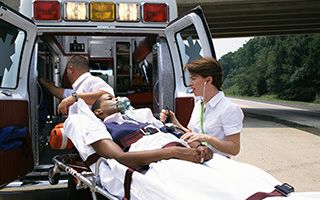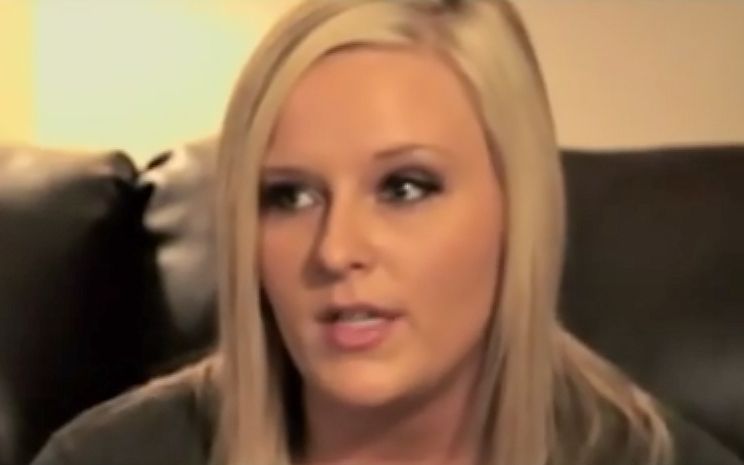
It is possible in some cases to resolve a car accident claim without hiring an attorney. Such situations may include accidents involving only property damage, where liability is not disputed.
But don’t assume that your claim is straightforward. Some injuries that seem simple at first may turn out to be much more complex, and questions of liability can quickly become complicated.
For these reasons, it is generally in your best interest to contact a car accident attorney as soon as possible after the crash. An experienced attorney can advise you of your legal rights and discuss your options for receiving fair compensation for your injuries.
Some of the specific situations where it is beneficial to contact a car accident attorney include:
1. You Are Seriously Injured
Car accidents can result in a host of serious injuries, from whiplash and bone fractures to brain injuries and spinal cord trauma. Although thankfully not every accident will result in severe injuries like these, it is always best to seek medical attention as soon as possible when you have been hurt in an accident.
Once a doctor diagnoses your injuries, you will have an understanding of how serious your condition is. Even soft tissue injuries may require lengthy rehabilitation. Diagnosis and treatment of traumatic injuries is time-consuming and can be expensive.
If the accident was not your fault, you are entitled to compensation for your injuries. However, the other driver’s insurance company may be resistant to paying you what your injuries are really worth. In this situation, it is helpful to have an attorney who can gather evidence to support your claim and advocate on your behalf.
2. When the Insurance Company Makes a Low Offer You Are Denied the Compensation You Deserve
“Lowball” offers are not uncommon in car accident claims involving serious injuries. Insurance companies may try to pay you less than the true value of your claim.
For some seriously injured people, the prospect of any settlement that helps them with the seemingly endless flood of medical bills and other expenses may seem attractive. However, many car accident victims do not account for the future medical costs of their injuries or the compensation that may be available for pain and suffering and mental anguish.
Once you accept a settlement from the insurance company, you will be blocked from pursuing a claim in the future even if your injuries become much worse over time. Therefore, it is worth speaking to an attorney before you agree to settle to ensure that you are being fairly compensated.
3. Fault Is Contested
In some cases, the driver who is at fault for the accident may claim that you are partially or fully at fault. As a consequence, the at-fault driver’s insurance company may offer you far less compensation than you deserve – or they make no settlement offer at all.
When liability is disputed, it is important to contact a car accident attorney to protect your right to compensation.
Your attorney will investigate the accident to determine who is at fault. Remember, even if you are partially at fault for the accident, you may still be entitled to compensation. If the claim that you are at fault is baseless, your lawyer will pursue full recovery for the damages you have sustained.
4. Complex Liability
Many car accident claims revolve around a collision between two vehicles. In these cases, liability generally rests with one or both parties.
However, some accidents may involve fault by more than one party. Examples include:
- Accidents involving employer negligence, as in truck accidents and other claims where a vehicle is used for commercial purposes
- Accidents involving vehicles that are owned and operated by the government
- Car accidents caused by defective parts
- Accidents caused by dangerous or poorly maintained roads
- Drunk driving accidents arising from a bar, restaurant, or other business that serves alcohol to an apparently intoxicated person
Each of these cases may involve one or more parties beyond the driver who caused the accident. Each of these additional parties will likely be represented by its own insurance company and, in some situations, its own legal team.
When multiple parties may be at fault for your car accident, it is in your best interest to have your own legal counsel to act on your behalf.
5. What Happens When a Claim Doesn’t Settle
The vast majority of car accident claims are settled out of court. However, if the insurance company won’t agree to a fair settlement, your case may need to be resolved by filing a lawsuit.
Court proceedings are subject to specialized rules and procedures that your attorney will know how to navigate. If you haven’t hired an attorney before this point, it is certainly in your best interest to have legal counsel before you enter the legal proceedings where the insurance company will have the advantage if you are unrepresented.
Contact Our Car Accident Attorneys Today
Fuller & Fuller has been serving Olympia, Tacoma, and nearby areas of Washington for over 45 years. Our family of attorneys has extensive experience with car accident claims, and we can help you in your time of need. Let our family help your family.
Please call (800) 570-4878 today for an initial review of your case.
What Should I Do Immediately After Being Involved in a Car Accident?
When you are involved in a car accident, there are many steps you can take to help protect your rights and preserve your ability to seek fair compensation. These include:
- Check for injuries and call 911 if immediate medical attention is needed.
- If it doesn’t jeopardize your health or others, move your vehicle out of the flow of traffic.
- Gather names, addresses, license plate numbers, insurance details, and contact information of all involved parties and witnesses.
- If it is safe to do so, take photos of the accident scene, the damage to the vehicles, any visible injuries, and any relevant traffic signs or signals.
- Call the police and have an official report documented.
- Seek medical attention if you have any injuries.
- Report the accident to your insurance provider.
Remember to avoid making admissions. Be cautious with your words. Don’t admit fault or make speculative statements about the accident.
It is not always possible to take these steps after a car accident, either due to injury or other factors. However, additional evidence can be gathered by your car accident attorney during the investigative process to support your claim and build a case for compensation.
If the Accident Was Minor, Should I Still Contact an Attorney?
Accidents that initially appear minor can sometimes be deceiving in their true impact. While it may seem like an overreaction to involve an attorney after a minor fender-bender, there are several valid reasons to speak with a lawyer before determining how to proceed. These include:
- Delayed Injuries: Some injuries will manifest symptoms days or even weeks after the accident. By consulting with an attorney early on, you’re better prepared if medical issues emerge later.
- Property Damage Assessments. What seems like a minor dent might be hiding severe damage beneath. An attorney can help ensure you’re fully compensated for all damages, not just the visible ones.
- Fault Disputes: The other party might dispute their responsibility. Having an attorney means you have someone on your side who understands the legal complexities and can advocate for your rights.
- Insurance Company Tactics. Insurance companies often aim to minimize payouts, regardless of an accident’s severity. An attorney can help evaluate the fairness of such offers and negotiate with insurance adjusters on your behalf.
- Protecting Your Rights: Should you decide to file a claim, there are timelines you must adhere to. An attorney will ensure that all filings are timely and accurate.
- Peace of Mind: Having legal counsel gives you peace of mind by reducing the chances of unforeseen complications or pitfalls.
Even if an accident seems minor, there are potential legal, medical, and financial ramifications that can surface later. Having an experienced car accident lawyer review your claim helps to protect your rights and safeguard your interests.
Your consultation at Fuller & Fuller is free of both cost and obligation. Reach out today to schedule your complimentary case review at our Tacoma or Olympia location.
Can I Still Get Compensation if I Was Partially at Fault for the Accident?
Fault in car accidents isn’t always black and white. There are situations where multiple parties share some degree of blame. In Washington State, the legal system acknowledges this nuance through what’s known as comparative fault (see RCW 4.22.005).
In many states, if you’re found even slightly at fault for an accident, you might be barred from recovering any damages. However, Washington’s comparative fault system is more lenient. It allows you to recover damages even if you played a role in the accident. But there is a catch: your compensation will be reduced according to your degree of fault.
This approach ensures that even if an injured party contributed to the accident, they won’t be left without compensation if the other party was also negligent to some degree. It recognizes that accidents often result from a combination of factors and multiple parties’ actions.
Unfortunately, when you’re involved in a lawsuit, the opposing party will likely try to pin as much blame on you as possible to reduce their liability. Having an experienced and proven attorney on your side can help to ensure you are not deprived of fair compensation.
Washington car accident lawyer Marya Fuller is a specialist in accident and injury law. Bringing over three decades of experience with personal injury claims to each case, she understands how to investigate accidents, identify their causes, and determine where fault should lie.
What if the Responsible Driver Is Uninsured or Underinsured?
Encountering a driver who is uninsured or underinsured can be particularly stressful, especially when they are at fault for an accident. However, there are protective measures and avenues available to ensure victims aren’t left with uncompensated damages:
Uninsured Motorist (UM) Coverage
This type of coverage kicks in when you’re involved in an accident with a driver who doesn’t have auto insurance. This can cover bodily injuries sustained by you, your passengers, and members of your household. Some UM policies may also cover property damage.
Underinsured Motorist (UIM) Coverage
Even if the at-fault driver has insurance, their policy limits might not be enough to cover all the damages. UIM coverage helps bridge the gap between what the at-fault driver’s insurance can pay and the total amount of your damages.
Limitations and Considerations
- Policy Limits. Like other insurance coverages, UM/UIM has limits. It’s important to understand your policy’s limits to ensure you’re adequately covered.
- Claim Process. Filing a UM/UIM claim can sometimes be as challenging as filing a claim against another driver’s insurance. Your insurance company may require proof that the other driver was at fault or that their insurance can’t cover the full extent of the damages.
- Claim Denials. If there’s a dispute regarding the accident’s details or the amount you’re claiming, your insurance company might resist paying out the full UM/UIM claim.
Even with UM/UIM coverage, there is no guarantee of a successful claim. Talking to an experienced car accident lawyer about your options can help you choose the best course of action.
Are There Time Limits to File a Car Accident Claim?
In Washington, the statute of limitations for personal injury and property damage claims is typically three years from the date of the accident. Exceptions might include cases involving minors, when the injury isn’t discovered right away, or when a federal tort claim is involved. ), It is advisable to speak with a lawyer as soon as possible after an accident to avoid any issues regarding missing the statute of limitation (see RCW 4.16.080).
The sooner you take action, the easier it may be to collect evidence, interview witnesses, and properly establish liability. Waiting to file a claim may result in a lack of medical evidence or other complications. Taking quick action helps to preserve your rights, expand your options, and may help to improve your chances of securing full compensation.
What Types of Compensation Are Available Following a Car Accident?
Two types of compensatory damages can be sought following a car accident in Washington: economic and non-economic.
Economic damages cover verifiable expenses, such as:
- Medical Bills (Present and Future)
- Lost Wages (Present and Projected)
- Property Damage (Vehicle and Belongings)
- Home Modifications (Ramps, Handrails, Etc.)
- Assistive Technologies (Wheelchairs, Walkers, Etc.)
- Household Help
Also known as special damages, these will include all current and future expenses related to your injury.
Non-economic damages, also known as general damages, seek compensation for things including:
- Pain and Suffering
- Loss of Enjoyment in Life
- Emotional Distress
- Loss of Consortium
- Physical Discomfort
Unlike medical bills or lost wages, non-economic damages address the intangible emotional and physical consequences suffered by victims of serious injury.
There is no cap on compensatory damages in personal injury cases in Washington State. This means there are no state-mandated limits to what can be awarded for general or special damages. However, Washington State does not allow for punitive damages to be sought in personal injury claims.
Every car accident claim is different. The best way to learn what your case may be worth is through a one-on-one consultation with an experienced Washington car accident lawyer. Reach out to Fuller & Fuller today to schedule a FREE case review and learn more.






